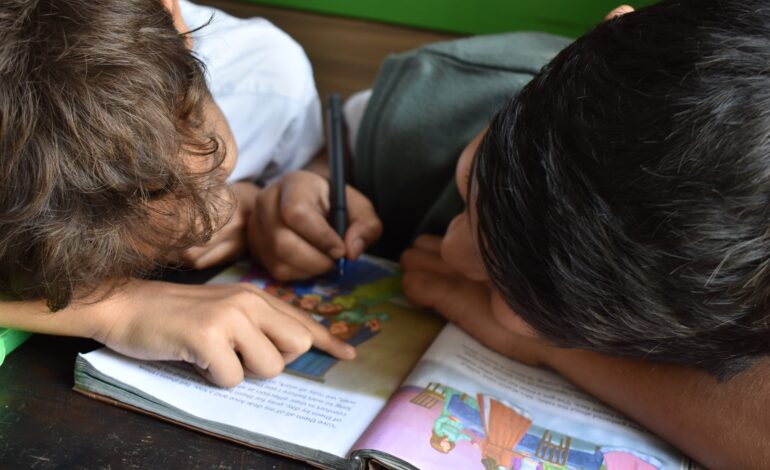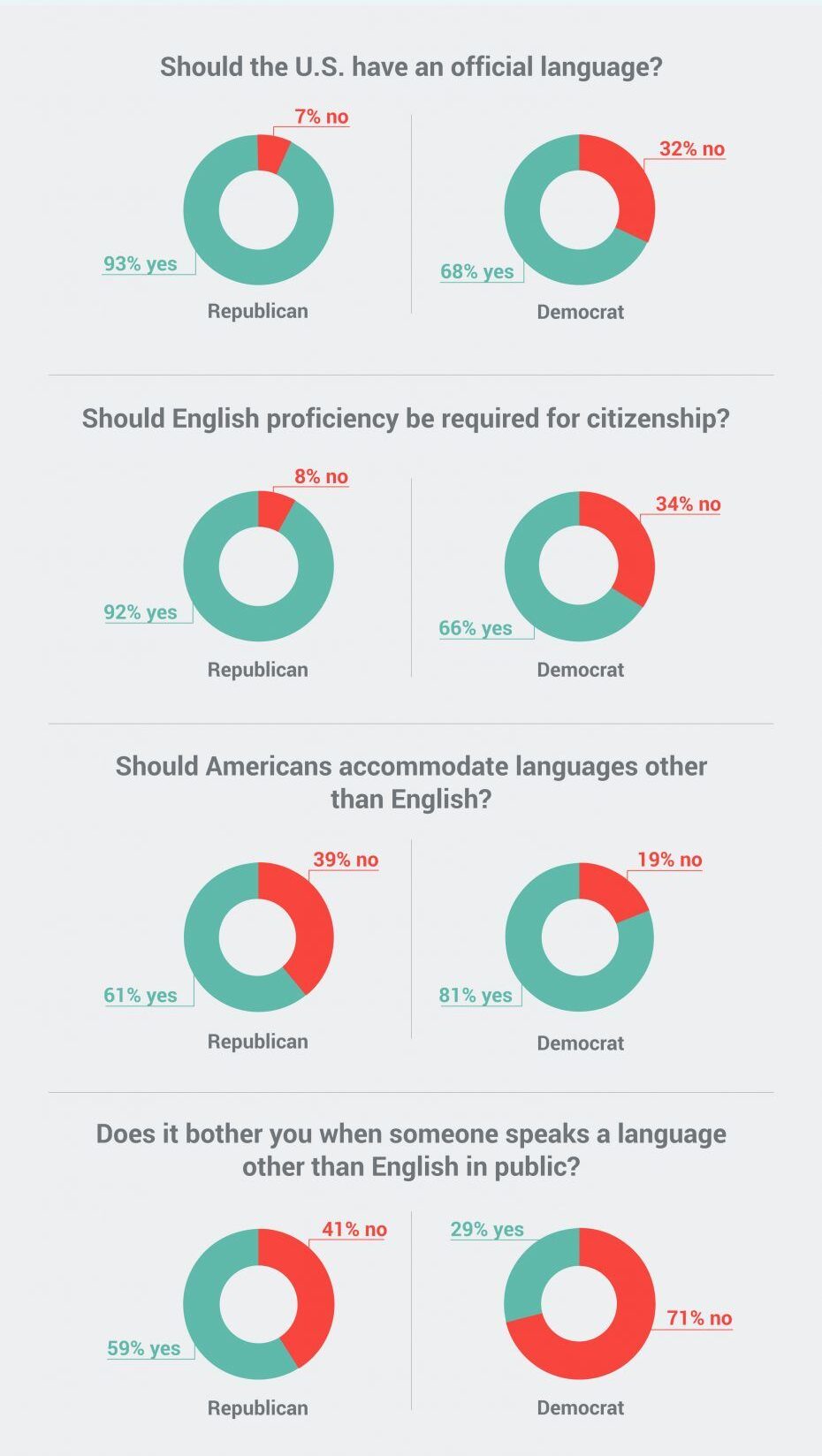A recent survey set out to ask whether Americans believe they should cater to languages other than English.
Survey takers at Preply, an online educational platform, knew that the diversity in language and cultures in the U.S. enriches its society, but that differences in language can also sometimes serve as cultural barriers between groups.
These differences can also be the subject and focus of bigoted elements, marginalizing groups of Americans who are indeed essential to the country’s fabric.
Statistics show that America is a unique outlier in the world. According to the Pew Research Center, the U.S. has more immigrants than any other country, yet only 1 in 5 Americans speak a language other than English.
According to census data, 21.6 percent of Americans speak a language other than English at home.
While countries like Russia and India have more than 20 official languages, the U.S. has none. These facts led the survey takers to ask 1,000 Americans the question: Should Americans cater to languages other than English?
Some key findings from the survey were:
- 7 in 10 say that Americans should cater to other languages.
- 3 in 4 say that the U.S. should have an official language.
- 70 percent of Americans believe ballots and voting material should be offered in multiple languages, as should government agency services.
- Pros of catering to other languages as said by survey subjects: 1. Promote equality and equity 2. Encourage a melting pot of cultures and customs 3. Fight discrimination, stereotypes and xenophobia.
- Cons of catering to other languages as said by survey subjects: 1. Increase taxes 2. Frivolous government spending 3. Make the country less united 4. Less opportunities for native English speakers.
According to Preply’s report, 70 percent of Americans surveyed said they had helped non-native English speakers get through their day and 3 in 5 respondents said they believed that non-English speakers can get through their day without even speaking the language, due to helpful courtesy from English speakers and being in close proximity to non-native speakers across the nation. This is especially true in Arab enclaves of Metro Detroit, like Dearborn and Hamtramck.
Though constitutionally, states are required to provide voting materials in minority languages as determined by the most recent census, ever changing population needs due to immigration have pushed local bodies to update their procedures. Recently the Hamtramck government was sued in federal court by an Asian American legal foundation for violating the Voting Rights Act by not complying with required language assistance for Bengali American voters, though at least part of the dispute was over which Bengali dialect was dominant among residents.
Nearly 3 in 4 (70 percent) of Americans surveyed felt that services like public utilities should accommodate many different languages, but only 2 in 5 feel this support should exist in elective settings such as restaurants.
While more than half of the respondents said they believe that catering to other languages would help to promote equality and equity among people living, 33 percent argued that multilingual programs would increase taxes and said government spending was a concern. Thirty-two percent even indicated that catering to languages other than English would cause the country to become less “united.”
Nearly 2 in 5 said it bothers them to hear a language other than English in public. Almost half had criticized or had seen someone criticized for speaking a different language.
Twenty percent said they feel that catering to other languages will harm native English speakers, most notably by reducing opportunities for American citizens, though more than 30 percent said they believed non-English countries should cater to English-speaking visitors.
Researchers contended that language preference seemed to be a political issue. Ninety-three percent of Republicans surveyed said the U.S. should have an official language, while 68 percent of Democrats said the same.
Almost all Republicans, 92 percent surveyed, said English proficiency should be required for citizenship, compared to 66 percent of Democrats. Sixty-one percent of Republicans said Americans should cater to languages other than English, while 81 percent of Democrats said the same.
Finally, 59 percent of Republicans versus 29 percent of Democrats surveyed said hearing someone speak a language other than English bothered them.
The survey also found that younger generations were more open to accommodating non-English languages and speakers. Older Republicans were more often opposed to accommodating different languages.
It concludes that while many support catering to other languages, there’s continued room for growth and understanding of different languages and cultures.







Leave a Reply